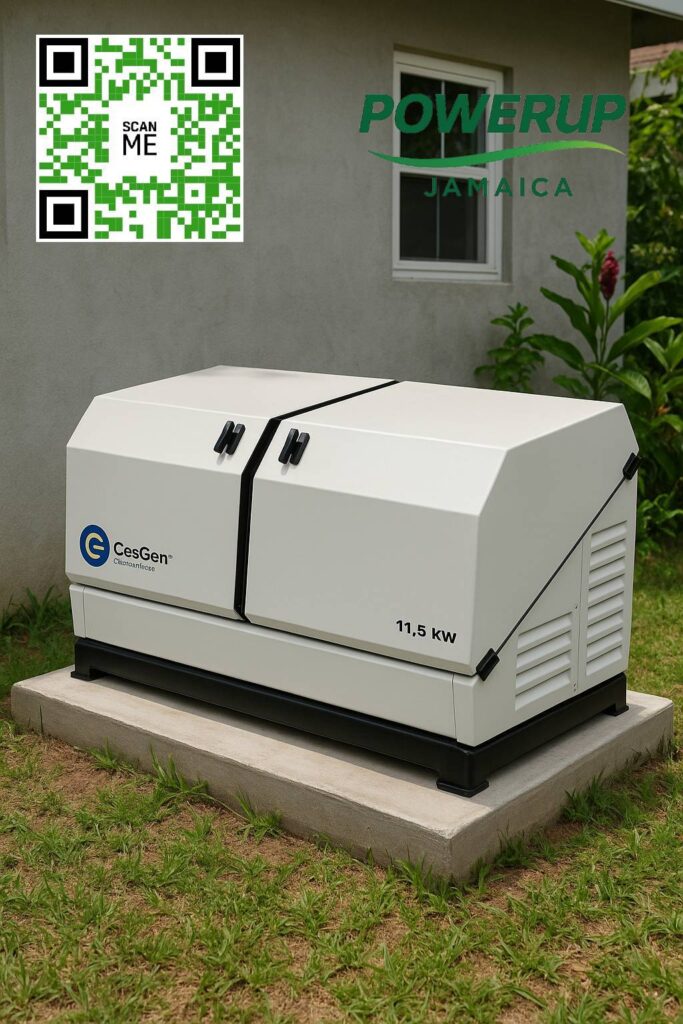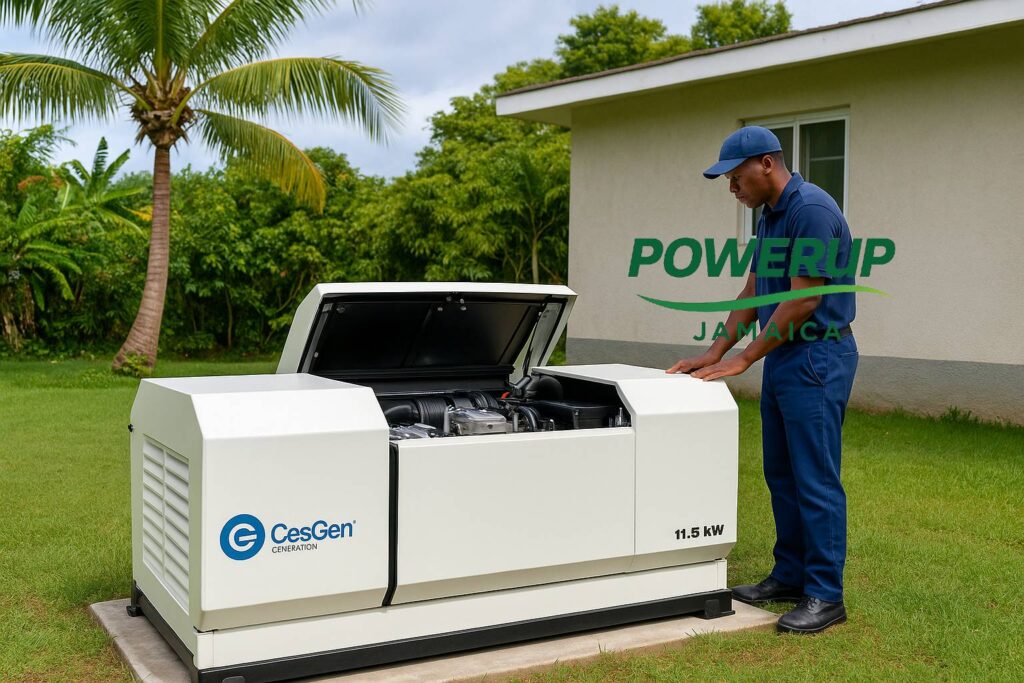
WHAT WE SUPPLY
CesGen LNG Power Generator
The CesGen 11 kW Home Standby Generator System, featuring a 100-amp automatic transfer switch, offers a fully automatic solution for your home’s power needs. It efficiently manages your electrical loads, cutting costs and boosting efficiency. This system is engineered with advanced sound dampening, never requires refueling, operates reliably in extreme temperatures, and comes with an industry-leading 10-year limited warranty.
| Feature | Specification |
|---|---|
| Length | 28.3 in. |
| Width | 27.4 in. |
| Height | 25.6 in. |
| Weight | 165 lb. |
| Frequency | 50 Hz |
| Voltage | 120/240 |

